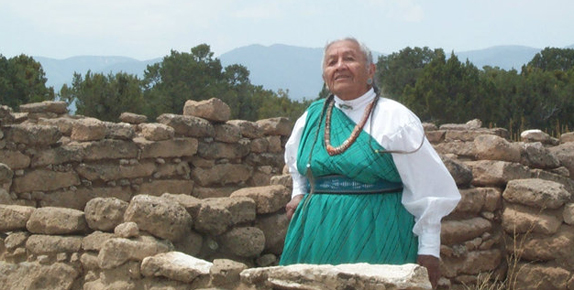
- Details
- By Native News Online Staff
The Administration for Children and Families (ACF) at the U.S. Department of Health and Human Services (HHS) has announced over $7 million in new funding awards for Native language projects. In 2024, ACF’s Administration for Native Americans (ANA) will fund eight projects under the Native American Language Preservation and Maintenance program and one project under the Esther Martinez Immersion program. These new awards are in addition to $10,218,134 for 37 continuing language projects, for a total ANA FY 24 investment of $17,316,599 in Native languages.
“Our language is who we are,” said ANA Commissioner Patrice H. Kunesh. “Only a people’s own language can communicate the full experience of their culture and identity. We need to keep this knowledge alive.”
These projects are the first to be funded under ANA’s new simplified grant application and funding model. In FY24, ANA will fully fund its grant awards upfront, rather than in annual increments. This approach will help new projects get off the ground faster, reduce administrative burdens and focus administrative support on the community project.
ACF Principal Deputy Assistant Secretary Jeff Hild added, “The Biden-Harris administration is committed to Indian Country and continues to support self-determination. The vitality of Native languages is critical to preserving traditional culture, ceremonies, identity and sovereignty. ACF continues to increase access to funding that supports language preservation and culturally specific services in Native communities.”
Specifically, eight Native communities will collectively receive $6,198,466 under the P&M grant program . These new projects will foster family and cultural connections through Native languages. For example, during the pandemic, the Forest County Potawatomi Community (FCPC) lost many fluent Bodwéwadmimomen (Potawatomi) speakers. To revitalize their language, FCPC plans to create an immersion-style language model to support new speakers. Other awardees, such as the Arctic Village Council, the Tolowa Dee-ni’ Nation and Waadookodaading Ojibwe , plan to create educational materials, dictionaries and interactive programs.
While some projects are focused on improving language fluency, the Changemakers Community Economic Development Corporation aims to increase the use of the Hawaiian language in everyday settings by providing language instruction to small business owners and their employees. The Omaha Tribe of Nebraska plans to develop a five-year strategic plan for language revitalization.
Under the EMI program, ANA will support an early childhood program in the Pueblo of Jemez. The project entitled “Normalizing Towa for Everyday Oral Communication in Jemez,” serves 100 children, including the Pueblo’s Walatowa Head Start Language Immersion Program . The project will offer Jemez language classes to parents of language immersion students to support Towa fluency in their homes. The Pueblo of Jemez received its first ANA language grant in 2021 under the American Rescue Plan. This is the Pueblo’s first full language grant award from ANA.
“We are so impressed with the dedication of these Native communities, not only for preserving their languages but also for creating holistic ways to learn and speak the language at school, home and work,” Commissioner Kunesh added in announcing the awards.
New FY 2024 EMI grant partners:
- Pueblo of Jemez, Jemez Pueblo, N.M. - $900,000
New FY 2024 P&M grant partners:
- Arctic Village Council, Arctic Village, Alaska - $893,492
- Changemakers Community Economic Development Corp., Hilo, Hawaii - $898,853
- Forest Co. Potawatomi Community, Crandon, Wis. - $840,118
- Oceti Sakowin Community Academy, Rapid City, S.D. - $898,207
- Omaha Tribe of Nebraska, Macy, Neb. - $843,461
- Shoshone-Paiute Tribes of the Duck Valley Indian Reservation, Owyhee, Nev. - $738,090
- Tolowa Dee-Ni’ Nation, Smith River, Calif. - $786,245
- Waadookodaading Ojibwe, Hayward, Wis. - $300,000
More Stories Like This
50 Years of Self-Determination: How a Landmark Act Empowered Tribal Sovereignty and Transformed Federal-Tribal RelationsNCAI Resolution Condemns “Alligator Alcatraz”
NABS Documents 134 More Survivor Stories, Expands Digital Archive in 2025
Navajo Nation Considers Ending Statute of Limitations for Child Sex Offenses
Pokagon Band allowed into Michigan Adult-use Cannabis Market Through State Agreement
Help us defend tribal sovereignty.
At Native News Online, our mission is rooted in telling the stories that strengthen sovereignty and uplift Indigenous voices — not just at year’s end, but every single day.
Because of your generosity last year, we were able to keep our reporters on the ground in tribal communities, at national gatherings and in the halls of Congress — covering the issues that matter most to Indian Country: sovereignty, culture, education, health and economic opportunity.
That support sustained us through a tough year in 2025. Now, as we look to the year ahead, we need your help right now to ensure warrior journalism remains strong — reporting that defends tribal sovereignty, amplifies Native truth, and holds power accountable.
 The stakes couldn't be higher. Your support keeps Native voices heard, Native stories told and Native sovereignty defended.
The stakes couldn't be higher. Your support keeps Native voices heard, Native stories told and Native sovereignty defended.
Stand with Warrior Journalism today.
Levi Rickert (Potawatomi), Editor & Publisher


